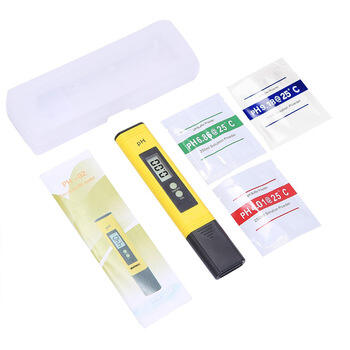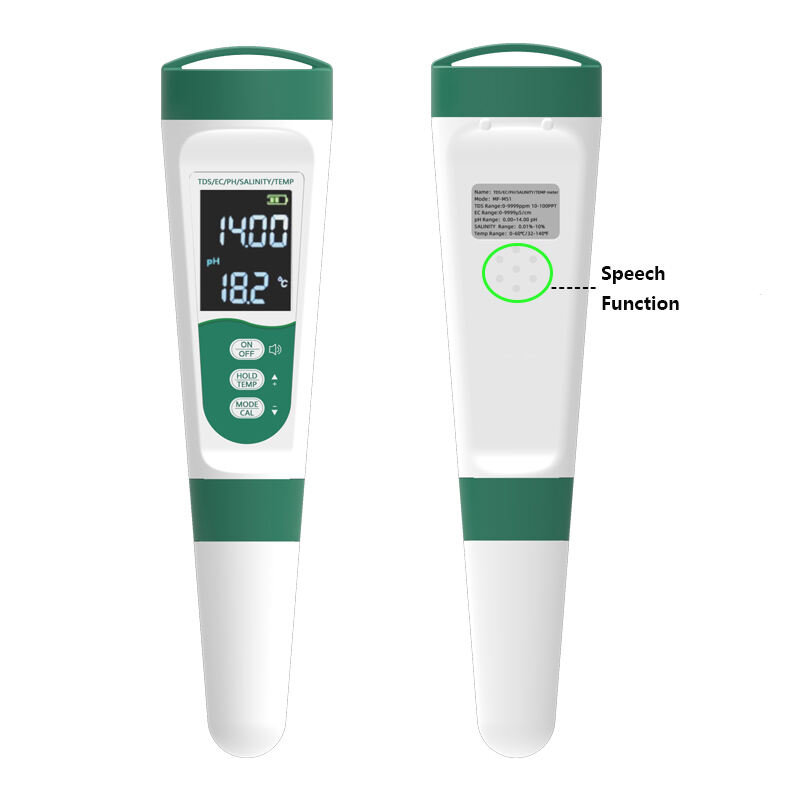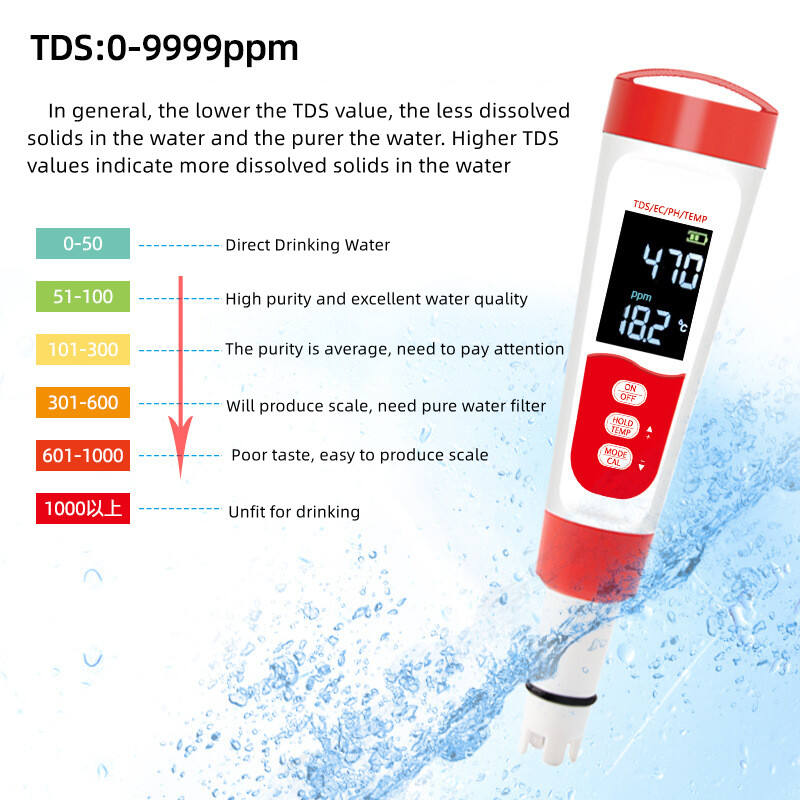ეკ მეტრი მიწის ტესტირებისთვის
Ელექტრონული მეტრი მიწის ტესტირებისთვის არის გავლენიანი ინსტრუმენტი, რომელიც შექმნილია ელექტრო კონდუქტიულობის ზომისთვის მიწაში, მომცემის ძველად მნიშვნელოვან მონაცემებს მიწის სალინობისა და ნუტრიენტური შესახებ. ეს მოდერნული მოწყობილობა გამოიყენება სოფისტიკირებულ სენსორების გამოყენებით, რომლებიც განასაზღვრებენ ამონახსნილი მარის და მინერალების კონცენტრაციას მიწის ამონახსნებში, მოთავაზებს ზუსტ ზომებს მიკროსიემენებში პროცენტულად (µS/cm) ან მილისიემენებში პროცენტულად (mS/cm). მეტრი მოიცავს მდებარე საკითხის პრობას, რომელიც შეიძლება გადაიტანოს პირდაპირ მიწაში ან გამოიყენოს მიწის ამონახსნებთან, მოთავაზებს სწრაფ წაკითხვებს ნახევარ დიგიტალურ ეკრანზე. მოდერნული EC მეტრები ჩვეულებრივ მოიცავს ტემპერატურულ კომპენსაციის შესაძლებლობას, რათა დარწმუნდეს ზუსტი წაკითხვები გარდაყოფილი გარემოს პირობების გარეშე. ეს ინსტრუმენტები არის უმნიშვნელოვანი აგრომერიტის პროფესიონალებისთვის, საბუნების მომართველებისა და სერიოზული ბუნებისთვის, რომლებსაც სჭირდება მიწის პირობების მონიტორინგი უმაღლესი მცენარეების გაზრდისთვის. აპარატის ვერსატილობა შესაძლებლობას აძლევს კონკრეტული ადგილების შემოწმებისთვის და მთლიანი მიწის შემოწმების ჩატარებისთვის უფრო დიდი ტერიტორიებზე. ბევრი მოდელი ახლა უკვე შეიცავს მონაცემთა ლოგირების შესაძლებლობას, რათა მომხმარებლები განსაზღვრონ მიწის პირობების ცვლილებებს დროის განმავლობაში და განსაზღვრონ განახლებულ გამოდგომებს ertilizatsiis და ირიგაციის სტრატეგიების შესახებ. EC მეტრების ტექნოლოგია განვითარებულია შეიცავს წყალში დახურვას, განგრძელებულ ბატარეის ცხოვრებას და კალიბრირების მეხსიერებას, რაც მათ ხდის პრაქტიკული და მართვის საშუალებით რეგულარულად ველში.


